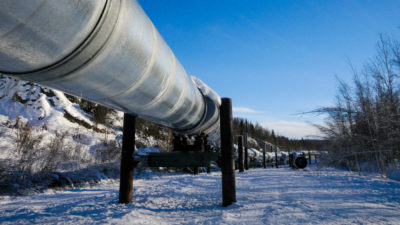The recent rout in crude prices has created havoc across North America’s energy industry, bringing into question the profitability of a number of oil-producing operations.
With the price of West Texas Intermediate or WTI close to US$65 per barrel, many shale oil operations, including the Bakken and Permian, are not profitable with a break-even cost of US$70 per barrel. Others, including the Texas Eagle Ford shale, remain profitable with break-even costs of US$60 per barrel or less.
Costs in the Bakken and Permian are dropping fast, with new drilling and extraction technology set to push costs as low as US$58 per barrel, which would see them become profitable even in the current operating environment.
But the rout in crude prices is bad news for Canada’s oil sands.
Why Canada’s oil sands will be the hardest hit
Typically these operations have some of the highest crude production costs per barrel globally with the estimated average break-even cost somewhere between US$75 and US$85 per barrel. The current rout is putting a dent in the development of oil sands projects and is set to significantly impact the earnings of some of Canada’s largest oil companies.
Currently, Suncor Energy Inc. (TSX: SU)(NYSE: SU), in partnership with Teck Resources Ltd. (TSX: TCK.B)(NYSE: TCK) and Total SA (NYSE: TOT), is developing the Fort Hills project, which requires an investment of $13.5 billion. With Brent now trading at US$70 per barrel, the project is set to still generate a profit but not in the range original estimates had predicted.
While this isn’t a significant problem for integrated energy giants like Suncor and Total, which can benefit from lower oil prices through higher margins in their refining operations, it is a significant obstacle for Teck Resources. It has in the past talked up the prospects the Fort Hill’s project offers, but with Brent prices set to remain below US$100 per barrel for some time, it is more and more looking like a liability.
Such low crude prices are also applying considerable pressure to smaller companies seeking to develop oil sands projects but that lack the funding to do so.
The most prominent of these is Sunshine Oilsands Ltd.’s (TSX: SUO) West Ells project and BlackPearl Resources Inc.’s (TSX: PXX) Blackrod project, which like the majority of oil sands projects have break-even costs of $60 to $65 per barrel. Both companies have struggled with obtaining sufficient financing to commence development of these projects and with WTI now below break-even, investors would do best to avoid them.
In fact with its high development costs and rising operating costs coupled with widening price spreads against the benchmark WTI price — worsened by a lack of pipeline capacity — I think it is time to avoid those companies solely focused on bitumen and heavy oil production.
Another company to be wary of is Canadian Oil Sands Ltd. (TSX: COS), which pays the second highest dividend yield on the S&P TSX 60 Index, a monster 10%. But the company is a high-cost operator, with the Syncrude project expected to have total supply costs of over $100 per barrel.
Even more worrying is that repeated cost blow-outs and unexpected maintenance are disrupting production at the project. This means over the long run Canadian Oil Sands will be operating at a loss if crude prices remain at their current levels. Its share price has been hit hard, plunging 43% over the last three months. While its dividend appears sustainable over the short-term, if crude prices remain at current levels for the long-term a cut is likely.
Clearly, the crude price crunch is set to hit the oil sands hard, with smaller operators with weak balance sheets the most exposed. But the large integrated energy majors like Suncor are well positioned to weather softer crude prices until they rebound.







